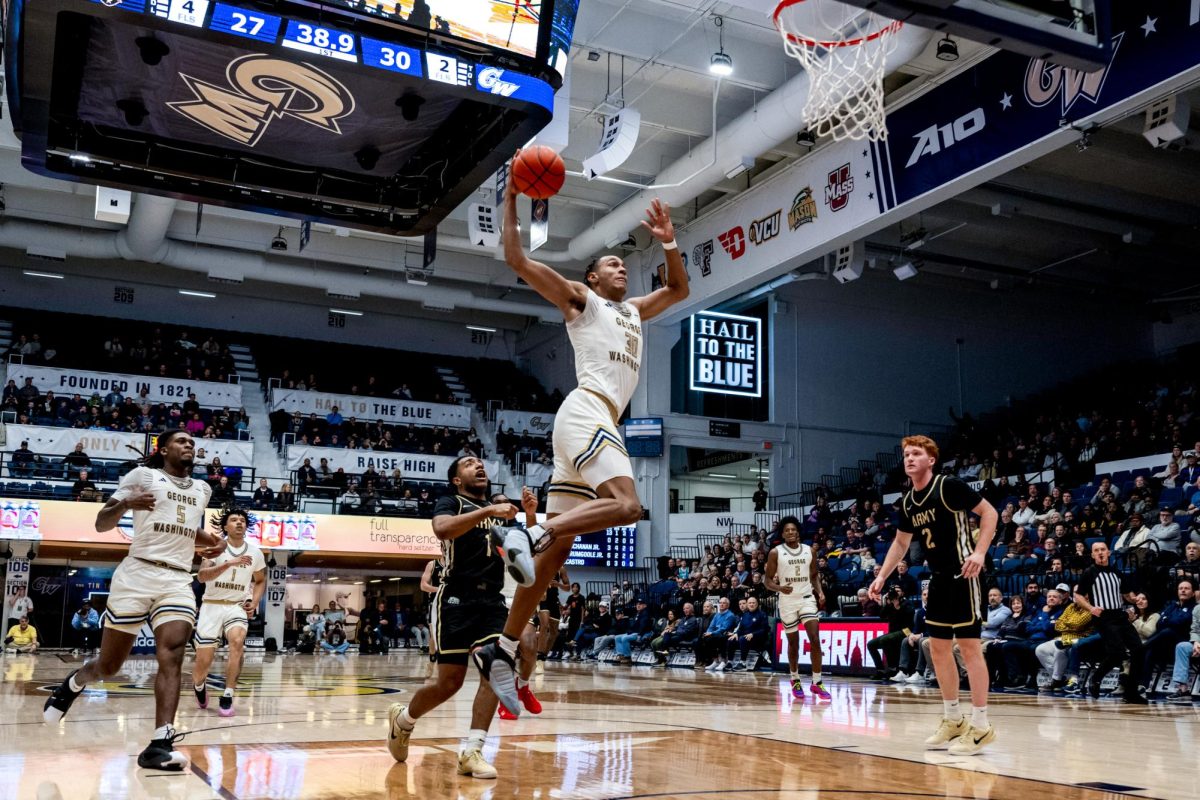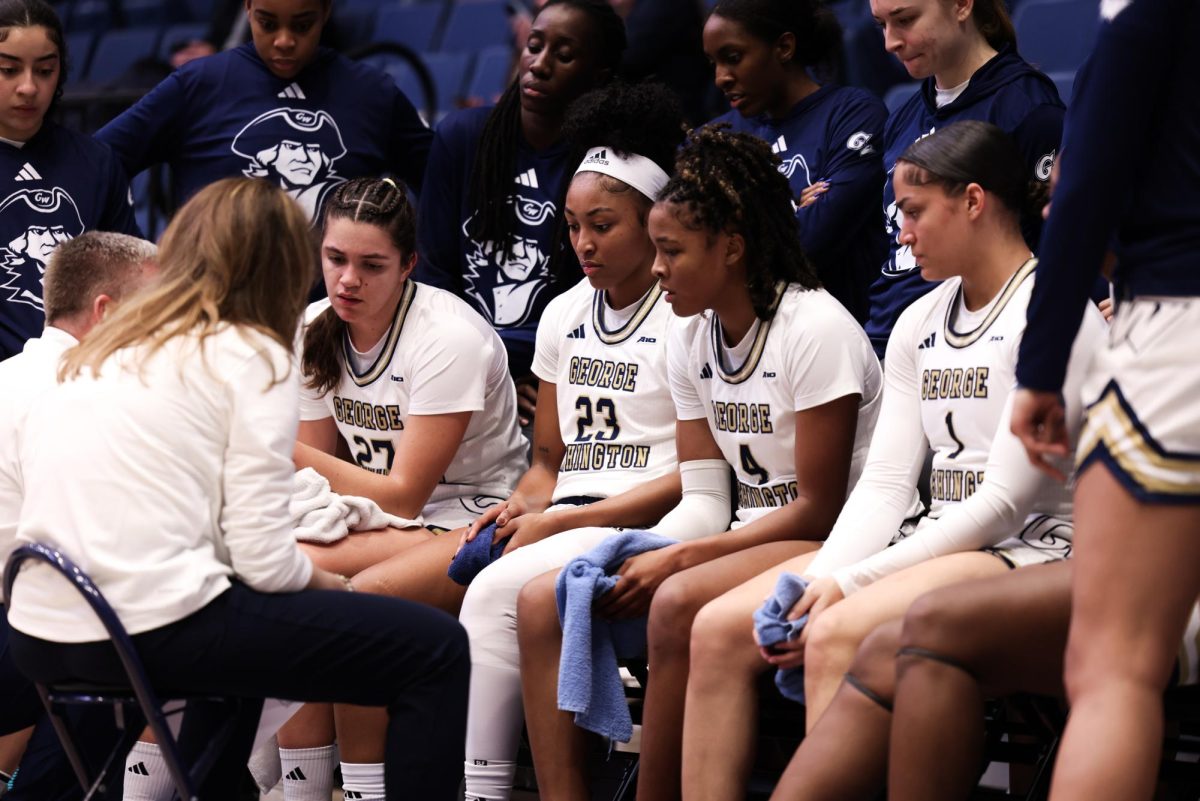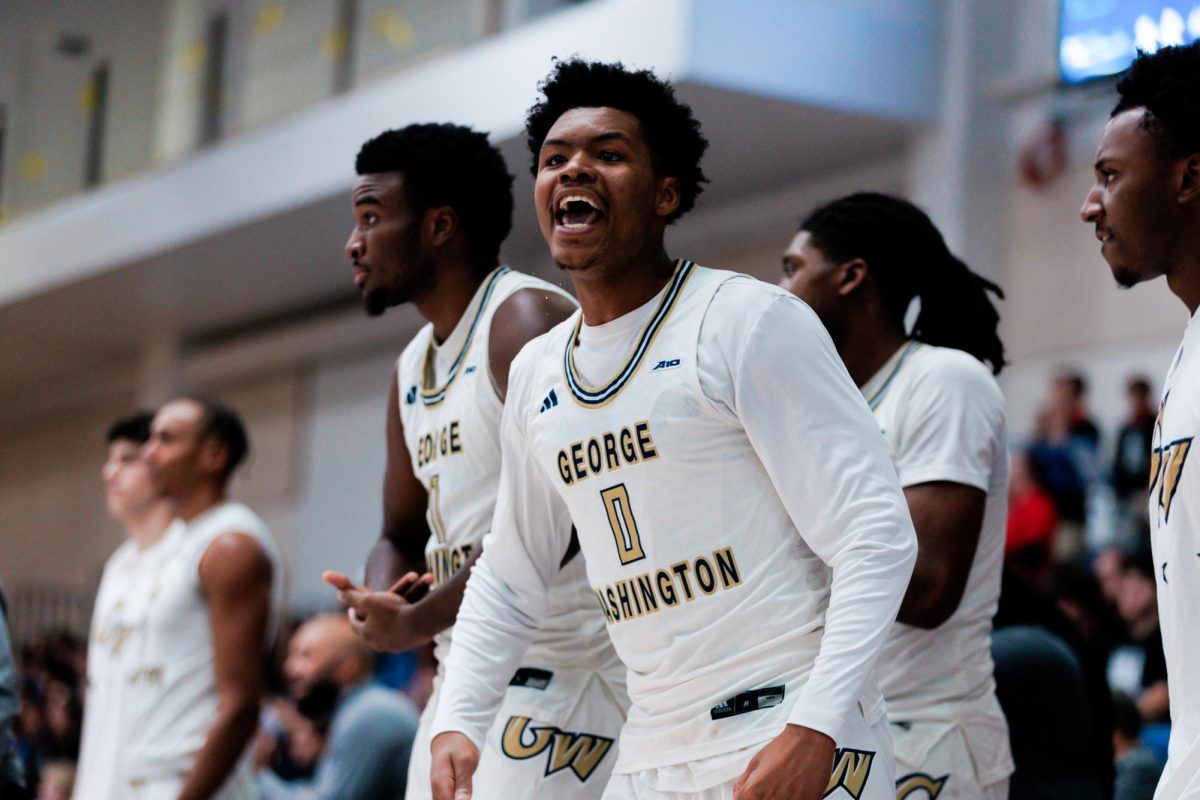This post was written by Hatchet reporter Marty Fenn.
After winning the Atlantic 10 tournament for the second straight year, the Colonials will face No. 12 seed Wake Forest in the first round of the NCAA tournament on May 8.
GW learned its fate Tuesday evening at the NCAA selection show watch party, just days after defeating VCU in the finals of the league championship.
“Every one of the nine player squad contributed to this title,” said head coach Greg Muñoz. “Last year was special because it was our first indoor title. This year was special because we only had three upperclassmen and five freshman.”
The Colonials will head to Winston Salem to take on the top-25 opponent riding a seven-match win streak, but will have to pull their biggest upset of the year to advance. Florida and Pepperdine are also in GW’s region, and will play for the right to take on the winner of the Colonials’ matchup with the Demon Deacons.
GW seems to be peaking at the right time. The Colonials entered the season ranked No. 54 but fell out of the rankings in late February and were 6-12 through the end of March.
“Unfortunately, illnesses [hampered] us at the beginning of this year,” said head coach Greg Muñoz. “Fortunately we got healthy and were fully ready to play over two weeks before the conference championship, and we’ve shown that with a seven match win streak.”
The Colonials first knocked off Dayton to reach the semis, then downed the first-seeded Richmond Spiders to reach the championship. After knocking off second-seeded VCU, the Colonials had their second tournament title in a row, one that would once again send them to the NCAAs.
The team dispatched Dayton 4-0 on Friday, winning both the Nos. 1 and 2 doubles outings, 8-3. After sweeping through three singles matches to clinch the win, the Colonials advanced to take on a top-seeded Richmond squad. Reigning A-10 Performer of the Week and all-time singles wins leader senior Francisco Dias picked up a 6-2, 6-0 victory, while juniors Cahit Kapukiran and Danil Zelenkov took their matches 6-1, 6-1 and 6-2, 6-1, respectively.
On Saturday evening, the fourth-seeded Colonials took down the top-seeded Spiders 4-1, getting 8-2 victories at both the No. 2 and No. 3 slots. In singles play, Kapukiran continued his hot play with a 6-1, 6-2 victory to regain the lead for GW. Sophomore Julius Tverijonas chipped in a 6-1, 7-5 win and freshman Chris Fletcher defeated his opponent 6-4, 6-2 to give the Colonials the final point they needed for a berth in the championship against VCU.
“Richmond had a great year,” said Muñoz. “The top four [seeds] all had different seasons but were all capable of winning a title.”
Facing the Rams in the title match for the second year in a row, the Colonials started well, winning the doubles point behind the teams of sophomore Julius Tverijonas and Danil Zelenkov (8-5) and Dias and Chris Fletcher (8-3). The Rams won the next two points in the first singles slates, but Zelenkov eked out a victory in three sets (7-5, 4-6, 6-3) to even the match. A resilient Cahit Kapukiran gave the Colonials a boost with a 6-2, 7-6 (10) win after a long second-set tiebreaker.
After Kapukiran’s match, Dias closed out VCU’s Michal Voscek 6-3,4-6, 6-1 on center court to secure the Colonials’ fourth title in five years. Dias said he locked in when he heard the roar that went up after Kapukiran’s match, knowing the team was one point away from another championship.
“I was very aware [of the situation], which is something I like,” Dias said. “When Christos [Hadjigeorgiou] screamed ‘match on 6 boys’ and I realized I was the last match on at 5-1 up and serving, I felt a rush of relief because I was playing very well and I knew there was no way I was going to let that match go. It was truly a great feeling to be able to clinch for the title, on center court, on my last year nonetheless.”
The win marked the fifth title in program history and the fourth in the last five years. The Colonials had only won the title once, in 1979, before winning titles in 2011, 2012 and 2014.
Heading into the tournament, Muñoz stressed the cohesive atmosphere that collegiate tennis provides, especially in GW’s small program.
“Teams are very small,” Muñoz said. “It takes a lot of sacrifice from the top players to the non-scholarship players to the ones that are building their games to play in the lineup.”






